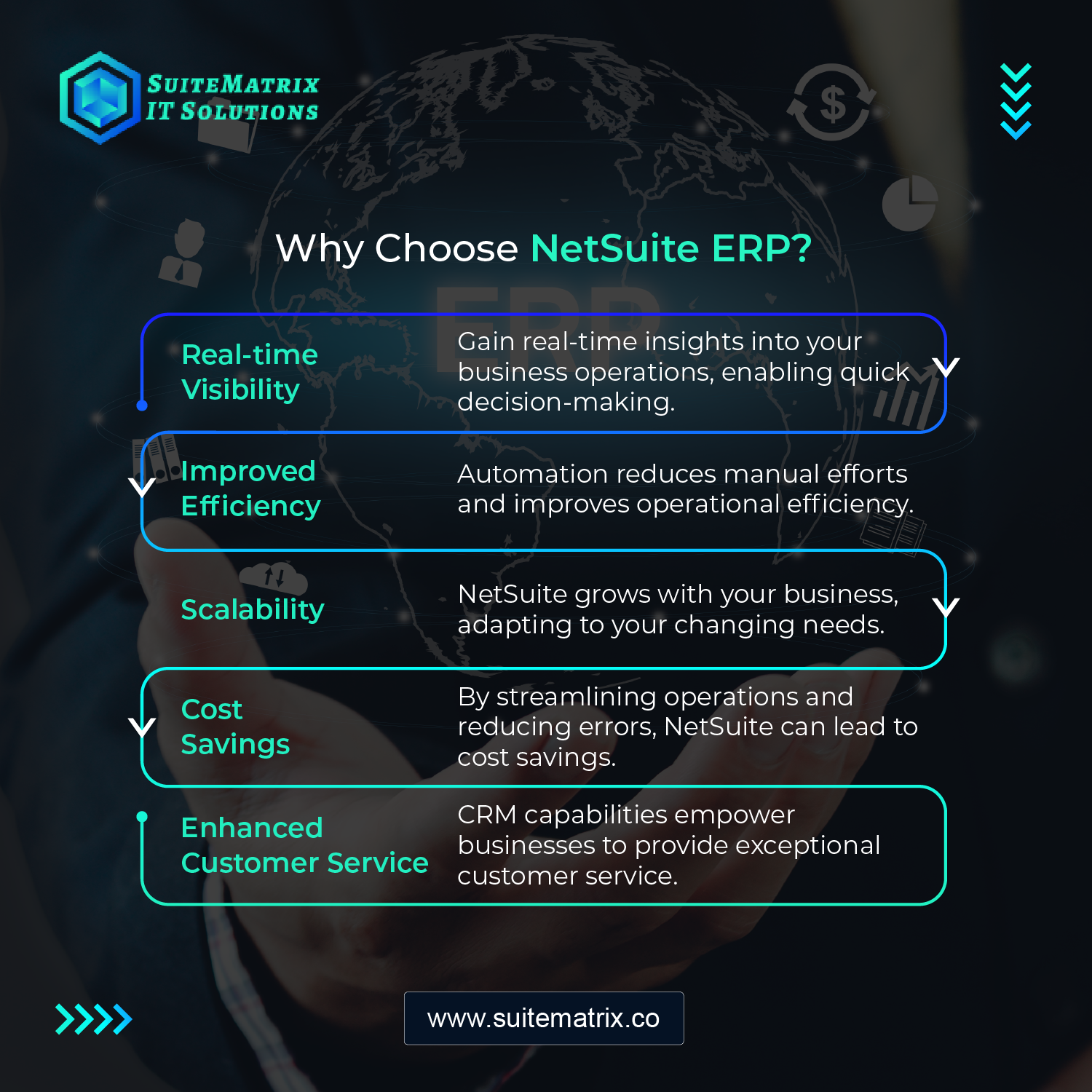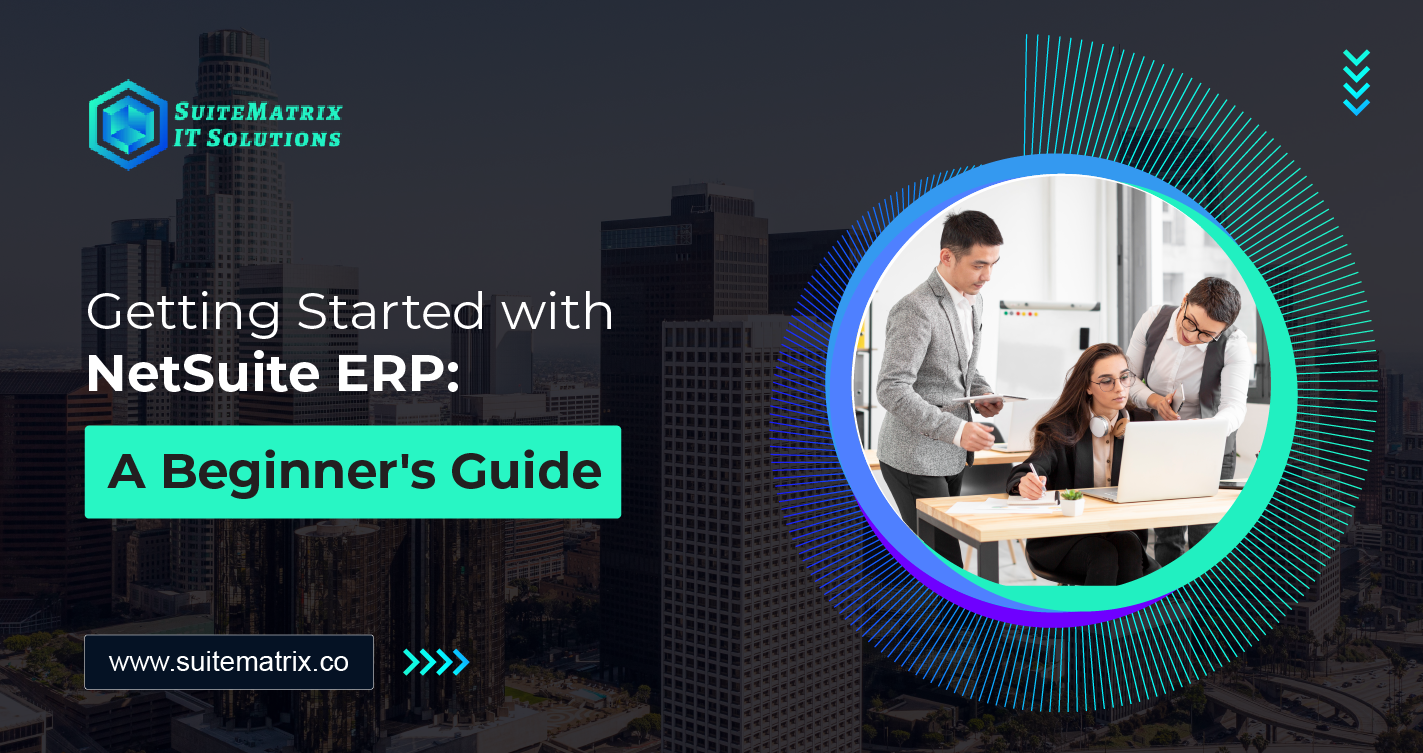According to Global News Wire, the global ERP software market is expected to reach $78.4 billion by 2026. In fact, a survey of IT decision-makers by Computer Weekly and Tech Target says that 53% said ERP was an investment priority, in addition to CRM. Enterprise Resource Planning (ERP) systems have become a crucial component of modern businesses, streamlining operations, enhancing efficiency, and fostering growth. Among the myriad of ERP solutions available, NetSuite ERP stands out as a comprehensive and versatile option. This beginner’s guide will walk you through the fundamental aspects of ERP, the significance of NetSuite ERP, how to begin your journey with it, its benefits, and more.
An Introduction to ERP
Enterprise Resource Planning (ERP) is a suite of integrated applications designed to manage and automate core business processes, offering a centralized and real-time view of operations. ERP systems consolidate various functions like finance, human resources, manufacturing, supply chain, and more, into a single platform. This consolidation eliminates data silos, enhances data accuracy, and fosters cross-functional collaboration.
What is NetSuite ERP?
NetSuite ERP is a cloud-based, all-in-one solution that offers a unified platform for financial management, customer relationship management (CRM), e-commerce, and more. It enables businesses to streamline operations, drive growth, and gain real-time insights for informed decision-making.
Understanding NetSuite ERP
NetSuite ERP comprises modules that address various business functions. These modules can be customized to align with your business needs, making it a versatile solution for companies of all sizes.
-
- Financial Management: NetSuite offers financial tools to manage accounting, financial planning, and revenue recognition.
-
- Customer Relationship Management (CRM): CRM functionalities help businesses manage leads, sales, and customer interactions.
-
- E-commerce: NetSuite e-commerce capabilities empower businesses to create and manage online stores.
-
- Inventory and Order Management: Streamlining inventory and order management processes to optimize supply chain operations.
-
- Human Capital Management (HCM): Managing HR, payroll, and employee data within a single platform.
How to Get Started with NetSuite ERP?
-
- Needs Assessment: Begin by assessing your business needs and processes that require improvement. Define your goals and expectations from the ERP system.
- Selecting a NetSuite Partner: Choose a reputable NetSuite partner or consultant who can guide you through the implementation process.
- Implementation: Collaborate with your partner to implement NetSuite ERP. This involves data migration, system configuration, and user training.
- Customization: Tailor NetSuite to meet your specific business requirements. This step ensures that the ERP system aligns seamlessly with your operations.
- Training and Adoption: Train your employees on how to use NetSuite effectively to maximize its benefits.
- Ongoing Support and Maintenance: Regularly update and maintain your NetSuite system to ensure it remains aligned with your evolving business needs.
Why Choose NetSuite ERP?

Conclusion
NetSuite ERP is a powerful tool that can revolutionize your business operations, offering a unified platform to streamline processes, enhance efficiency, and drive growth. By understanding the basics, selecting the right NetSuite partner, and customizing the system to your specific needs, you can unleash the full potential of this versatile ERP solution. SuiteMatrix, comprising a dynamic team of NetSuite Consultants, establishes the benchmark for implementing and customizing NetSuite with the best practices.

